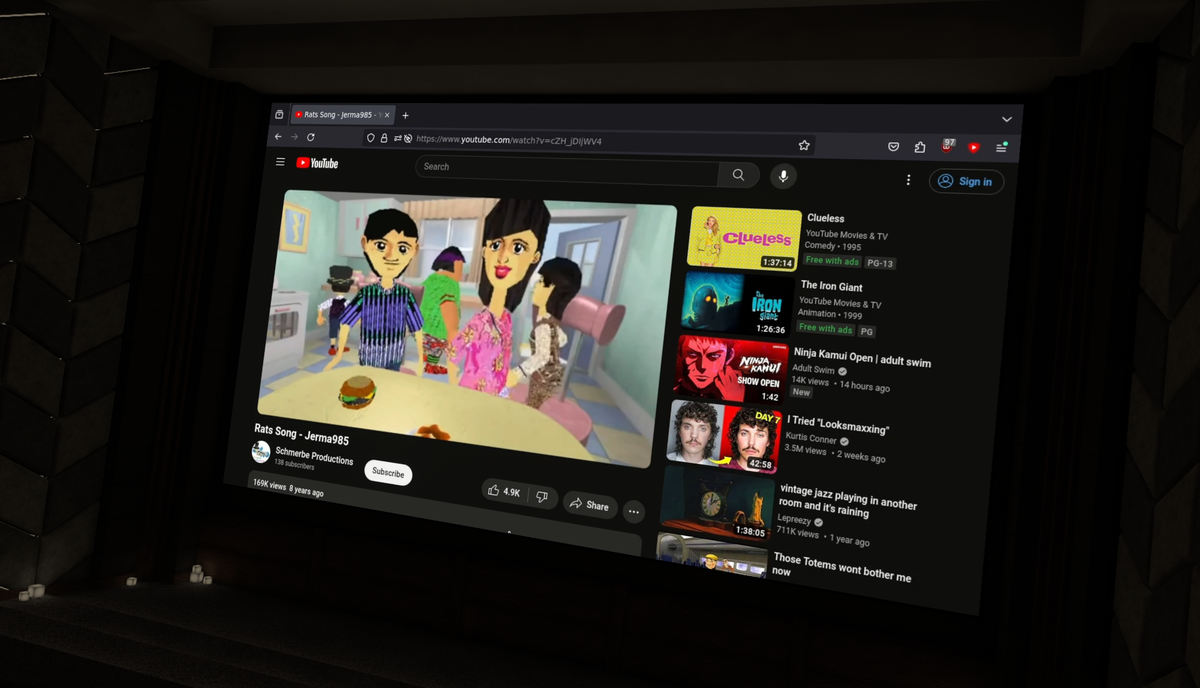The Cloud is just Someone Elses Computer

I am not that deep of a privacy nut, I mean I cared about privacy enough to turn off all the advert switches when installing windows, but in general I still use privacy unfriendly platforms like YouTube. I guess I just like convenience as well.
But what wasn't convenient was all the online services, that may start all right, but then inevitably, turn into shit once a company needs to turn a profit. On one hand I get it, but on the other I am not spending 10 bucks a month to turn off and on a few smart lights. But in the end, theres not much you can do about it, since the cloud is just someone else's computer, and fully in their control.
So of course now I self host my stuff. I run my own servers and services under my control, so I can choose what features I want, and I can change things on my whim, not by someone else's.
And like many self hosters, I had humble beginnings; an old shitty desktop running some version of Ubuntu. I lost pictures of it, but all I remember was that it was running an AMD fx CPU. Of course I had to upgrade.
I used a nifty online search tool called LabGopher to help comb through ebay for good server deals. Honestly, this was my first deep dive into the used hardware market, and for that my wallet has been eternally grateful ever since, because WOW you can get great deals and still good hardware. Eventually I scored an HP g6 dl380, with 12 CPU cores and 48 GB of ram.

All in all it was a great learning experience. I got much better at Linux, and had a pretty fun time setting up Proxmox on it, where I ran a VM for Nextcloud, and a vm for a few other services like Minecraft.
Unfortunately, while the CPU had a ton of cores, it wasn't very fast (just a pair of x5670s I believe), so Minecraft and other game servers struggled. Further more, the RAID card was busted, and every time I lost power, it would lose the data to read the disks, forcing me to reinstall EVERYTHING. In retrospect, if I just replaced that raid card / internal battery, it would have been fixed, but I didnt know that at a time, and I ended up selling the thing to someone who wanted to also run Minecraft servers.
My next build was a custom one, because at that point I had an income. BigBoi, which had a ryzen 3900x, 64 gb of RAM, a 4U tall case where I could shove in GPUs and 8 harddrives and multiple SSDs.
And I installed Unraid on it.
Don't get me wrong, Unraid isn't inherently terrible, but for a server OS to enable telnet by default, as well as sending passwords in webform over plaintext, I wasn't so confident in its security, as I was throwing up public facing websites. further more, the docker engine was often quite outdated, and there were always weird issues with RAM management. If you are hosting a small number of services at home just for you, then sure I am sure its fine.
But I wanted more.
Eventually, I backed up my data, and switched back to Proxmox. There, I set up a VM for Trunas Scale for my file storage needs, and thanks to proxmox clustering, I got a bunch of small used mini pcs from Ebay to toss in.
And now?
Well, I want to move BigBoy off proxmox and have it bare metal Trunas, but my proxmox clusters has been swallowing more and more computers into its hive mind.

Whats great with having so many computers is I can have tons of VMs, and have dockers in those VMs orchestrate a whole bunch of tasks, and then I can back up those VMs easily using Proxmox Backup Server. Its honestly great. I spun up Windows XP for running software for my ER-7, ARF, as well as staging a setup for Neko, to watch content in VRC with my friends.
I am by no means finished, but if I had a bit of advice for anyone, it would to scope what your desires are. And if you are going for public hosted sites and services, dont bother with things like Unraid. Use trusted tools like Proxmox to host Linux VMs to run the services you want, so you get the control and learning experience you want, while also being able to roll back screw ups thanks to VM rollback, and its all scalable to your desires.
